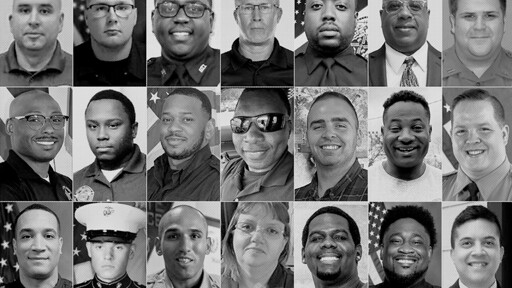(Ronald) Donat is among at least 29 recruits who died during basic training at law enforcement academies around the country in the last decade, an AP investigation found. Most died of exertion, dehydration, heat stroke and other conditions tied to intense exercise — often on the first day of training, like Donat. Others died several weeks in, sometimes after suffering trauma during boxing or use-of-force drills or collapsing during high-stakes timed runs on hot days.
Experts and police advocates were surprised by AP’s findings — based on an extensive review of lists of law enforcement deaths in every state, workplace safety records and news reports — and said many of the deaths were preventable. No federal agency or outside organization comprehensively tracks recruit deaths, unlike officers who die in the line of duty.
Black recruits represented nearly 60% of those who died, a striking disparity given that federal data show Black officers make up 12% of local police forces. Many carried sickle cell trait, a condition most prevalent among Black Americans that increases the risk of serious injury following extreme exertion.



Selection bias. You’re basing this on what you know of active cops. The ones who died were not active cops.
I always find it rather amusing when people claim to be Internet psychics. You don’t know what I based my statement on. But I’ll tell you: all cops and those who want to be cops. Cops are screened so that only dumb authoritarian bullies are even allowed to train to become cops.
Next time you try to be an Internet, psychic, don’t be so terribly wrong about it.
You told me that you’re judging them for their chosen profession. Admittedly, I may be lacking in imagination here, but I don’t see what other information you could be basing these judgements on if it’s not their public behaviour or knowing literally every single person who’s ever wanted to be a cop and their motivation. The filtering process is irrelevant when we’re talking about the decision to go through the process at all.